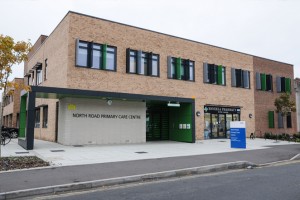West Road Surgery
1st Floor, North Road Primary Care Centre, 183-195 North Road, Westcliff-on-Sea, SS0 7AF
Telephone: 01702 339865
Sorry, we're currently closed. Please call NHS 111

Dear Patients, We are aware that some of our patients have experienced a delay when ordering their medication recently, please accept our apologies and know that we are working on rectifying this. Please also allow us 4 working days when ordering your prescription. Many Thanks West Road Surgery
Tests & Results
After having your test performed you need to phone the surgery for the results after one week.
Please call during Monday to Friday after 2.00 p.m. to enquire about your test results as our staff will have more time to help you at these times. Please use the main surgery number.
It is your responsibility to check for results and make any necessary follow-up appointment with the doctor.
Please note that we do have a strict policy regarding confidentiality and data protection. In this respect we will only give out results to the person they relate to unless that person has given prior permission for their release or if they are not capable of understanding them.
Blood Tests
A blood test is when a sample of blood is taken for testing in a laboratory. Blood tests have a wide range of uses and are one of the most common types of medical test. For example, a blood test can be used to:
- assess your general state of health
- confirm the presence of a bacterial or viral infection
- see how well certain organs, such as the liver and kidneys, are functioning
A blood test usually involves the phlebotomist taking a blood sample from a blood vessel in your arm. and the usual place for a sample is the inside of the elbow or wrist, where the veins are relatively close to the surface. Blood samples from children are most commonly taken from the back of the hand. The child’s hand will be anaesthetised (numbed) with a special cream before the sample is taken.
You can find out more about blood tests, their purpose and the way they are performed on the NHS Choices website.
X-Ray
An X-ray is a widely used diagnostic test to examine the inside of the body. X-rays are a very effective way of detecting problems with bones, such as fractures. They can also often identify problems with soft tissue, such as pneumonia or breast cancer.
If you have a X-ray, you will be asked to lie on a table or stand against a surface so that the part of your body being X-rayed is between the X-ray tube and the photographic plate.
An X-ray is usually carried out by a radiographer, a healthcare professional who specialises in using imaging technology, such as X-rays and ultrasound scanners.
You can find out more about x-ray tests, how they are performed, their function and the risks by visiting the NHS Choices website.
Urine & Stool Samples/Swabs
When you are given a pot for a urine or stool sample or a swab, together with a form, please remember to fill in the DATE and TIME that you produced the sample. Please write the date and time on:
1. the label on the pot or swab; where indicated by *
2. the pre-printed form (where indicated)
Please also check that all your other details are correct eg name and date of birth before returning the sample/swab to the surgery for onward transmission to the laboratory.
Please Note That All Specimens If You Wish To Return Them To Us For Drop-off Need To Be Here Before 11.30am




